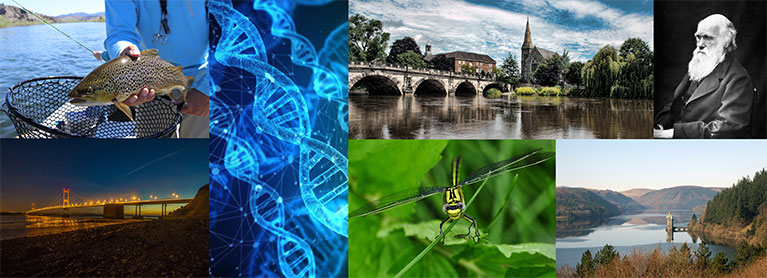
Putting diversity back together
Funder
Severn Rivers Trust / Severn Trent Water Coventry University
Value
£70,505
Collaborators
Mike Morris & Melissa Hoskings (Severn Rivers Trust), Zara Turlte & Jodie Rettino (Severn Trent Water), Alex Dumbrell (University of Essex)
Team
Martin Wilkes, Marco Van De Wiel & Laura Allen (CAWR)
Duration
3.5 years from January 2019
Project Objectives
To understand the processes that influence the success or failure of ecological restoration effort and make robust predictions at regional scales.
- Objective 1 - What processes control the reassembly of fish and invertebrate communities in restored river catchments?
- Objective 2 – How cost-effective are agri-environment schemes? How do they compare to community-driven, agroecological initiatives?
- Objective 3 –What are the potential freshwater biodiversity gains and losses that could be incurred under business-as-usual, pessimistic and optimistic management and climate change scenarios?
Impact Statement
This PhD project will build upon recent modelling advances made by the supervisory team that have unlocked the potential of ‘big data’ in aquatic ecology (e.g. Wilkes et al., 2018, Fish & Fisheries, doi.org/10.1111/faf.12282; Brown, Wilkes et al., 2018, Nature Ecology & Evolution, doi.org/10.1038/s41559-017-0426-x). It will combine routine monitoring and land-use data from 1000s of river sites across Europe (provided in-kind by project partners) with open access databases containing information on species’ traits and geographical distributions. By mimicking the way in which species at a site are ‘selected’ from the regional species pool when some aspect of the environment is changed, the approach will reveal, for the first time, the processes that influence the success or failure of agri-environment schemes and agroecological production at regional scales. The establishment of study catchments in the United Kingdom, supported by the involvement of Severn Rivers Trust, Natural England and University of Essex, will allow for the testing of predictions from regional-scale models using the latest eDNA techniques. Workshops and seminars will be held locally to collaborate with stakeholders and present project findings.




